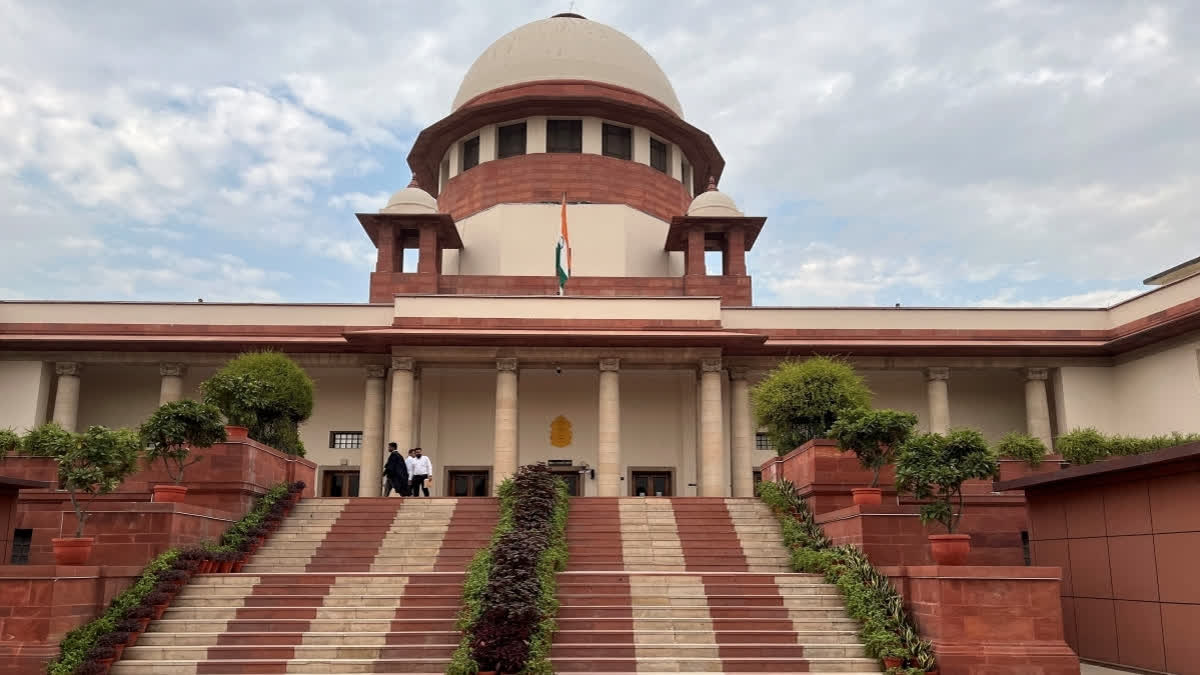New Delhi: The Supreme Court has said that the governor cannot be at liberty to keep the Bill pending indefinitely without any action whatsoever and stressed that the governor, as an unelected head of the state, is entrusted with certain constitutional powers and this power cannot be used to thwart the normal course of lawmaking by the state legislatures.
A three-judge bench led by Chief Justice of India D Y Chandrachud said the governor, as a guiding statesman, may recommend reconsideration of the entirety of the Bill or any part thereof and even indicate the desirability of introducing amendments. However, the ultimate decision on whether or not to accept the advice of the governor as contained in the message belongs to the state legislature alone, it added.
The bench, also comprising justices J B Pardiwala and Manoj Misra, said consequently, if the Governor decides to withhold assent under the substantive part of Article 200, the logical course of action is to pursue the course indicated in the first proviso of remitting the Bill to the state legislature for reconsideration.
According to Article 200, the Governor has three options available when a Bill which has been passed by the state legislature is presented for assent, which is the governor “shall declare” (i) either that he assents to the Bill; or (ii) that he withholds assents therefrom; or (iii) that he reserves the Bill for the consideration of the President. The bench said the power to withhold assent under the substantive part of Article 200 must be read together with the consequential course of action to be adopted by the governor under the first proviso.
“If the first proviso is not read in juxtaposition to the power to withhold assent conferred by the substantive part of Article 200, the Governor as the unelected Head of State would be in a position to virtually veto the functioning of the legislative domain by a duly elected legislature by simply declaring that assent is withheld without any further recourse”, said the bench, in a judgment on a petition filed by Punjab government alleging delay by governor in giving assent to bills passed by the state assembly. The judgment was uploaded today.
The apex court said: “Such a course of action would be contrary to fundamental principles of a constitutional democracy based on a Parliamentary pattern of governance. Therefore, when the Governor decides to withhold assent under the substantive part of Article 200, the course of action which is to be followed is that which is indicated in the first proviso. The Governor is under Article 168 a part of the legislature and is bound by the constitutional regime”. The bench said insofar as Money Bills are concerned, the power of the governor to return a Bill in terms of the first proviso is excluded from the purview of the constitutional power of the governor.
The apex court stressed that in a Parliamentary form of democracy real power vests in the elected representatives of the people. “The Legislative Assembly comprises duly elected Members of the Legislature. During the tenure of the Assembly, the House is governed by the decisions which are taken by the Speaker in matters of adjournment and prorogation. We are, therefore, of the view that the Governor of Punjab must now proceed to take a decision on the Bills which have been submitted for assent on the basis that the sitting of the House which was conducted on 19 June 2023, 20 June 2023 and 20 October 2023 was constitutionally valid”, said the bench.
During the hearing on November 10, the apex court orally remarked, “You're playing with fire. How can the governor say this? We are not happy with what is happening in Punjab......will we continue to be a parliamentary democracy?" The Punjab government had moved the Supreme Court alleging delay by governor in giving assent to bills passed by the state assembly. The plea said such "unconstitutional inaction" has brought the entire administration to a "grinding halt."
The Punjab governor is involved in a long-running feud with the Aam Aadmi Party government led by chief minister Bhagwant Mann. The first proviso to Article 200 stipulates that the Governor may “as soon as possible” return the Bill. The proviso to Article 200 envisages that, as soon as possible, after the presentation to the Governor of the Bill for assent he may return a Bill, which is not a Money Bill, together with a message requesting that the House or Houses would reconsider the Bill or any specific provisions of the Bill and in particular consider the desirability of introducing such amendments which he may recommend. When a Bill is returned by the Governor, the legislature of the State is duty bound to reconsider the Bill.
After the Bill is again passed by the legislature either with or without amendment and is presented to the Governor for assent, the Governor shall not withhold assent therefrom



